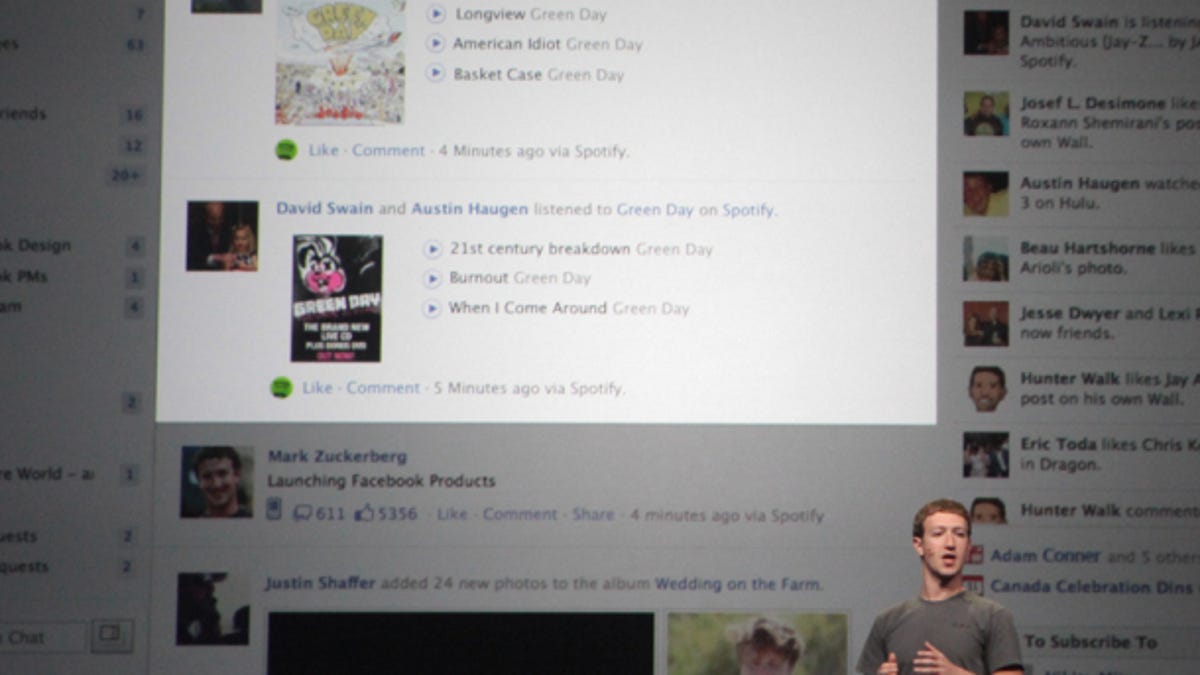Can a startup competition ID the next Facebook? Not likely
With its Startup World competition, The Next Web is hoping to become a player in unearthing future Mark Zuckerbergs. But the odds of finding another Google, Twitter, or Zynga in a competition are pretty small.

There's no doubt that there will someday be another round of superstar entrepreneurs on the order of Mark Zuckerberg, Larry Page and Sergey Brin, and Steve Jobs. But can a group of judges in an arbitrarily cobbled together "American Idol" for startups be the ones to identify them?
With its Startup World competition, which it announced today, The Next Web clearly thinks that the answer is yes.
"It's inevitable there will be the next Steve Jobs, Mark Zuckerberg, Google, or Facebook," The Next Web wrote this morning in its announcement of Startup World. "The question is: where in the world will they come from? As the cost of innovation decreases, and governments all over the world invest in startups to try and create the next Silicon Valley, entrepreneurship and startup culture is now a global story, where more people than ever are plugged in and switched on."
The structure of the competition is simple. Any for-profit startup launched in the last two years that has a demonstrable product and less than $2 million in funding is eligible to enter and potentially win the top prize of a three-month incubation period at I/O Ventures.
But who's to say that any of the startups that enter the competition will one day be worth 11 figures, and dominate the conversation in Silicon Valley and beyond? To be sure, it could happen. Startup World, however, will just as likely shine a spotlight on a few attractive ventures that are breaking new ground but that will otherwise eventually get lost in the vast sea of interesting-but-not-Facebook-caliber outfits.
Why? Well, look at the companies that are on that level: Google, Twitter, Apple, Facebook, and a handful of others. Did any of them emerge from competitions? Hardly. In each case, the founders got the companies off the ground by building exciting products, overcoming long odds, and attracting the attention of some of the most important VCs in Silicon Valley. Just as often as not, it wasn't clear for years how they would make money, let alone become world-beaters. But they had amazing technology, visionary leaders with commitment and conviction, and, let's be honest, a lot of luck.
These days, there is no end to the number of startup competitions, weekends, bus trips, and other events devised to try to help unearth the next big thing. And there are literally countless numbers of young companies that think their widget is going to change the world, making them household names on Sand Hill Road and indispensable to users. But how many get there? In the entire history of technology, no more than a handful.
The truth is that in order to break away from the pack and create something on the order of Facebook, you have to truly be a world-beater. You have to solve a very big problem in a way that no one ever has before, fill a gaping hole that somehow no one has yet filled, and even more important, your timing has to be just about perfect.
Even the companies that are today considered top-tier were around years before anyone really believed that they belonged on any most-important lists. Until that point, they soldiered on, gaining passionate users, and growing--sometimes quickly--but not quite dominating the world.
Remember when Facebook got a $240 million investment from Microsoft and was estimated to have a $15 billion value? That was more than three years after the company was founded. And even then, it was by no means clear that Facebook would become, well, Facebook. Many people still believed that the company would end up getting bought and incorporated into Microsoft or Google. And there was still MySpace to conquer, after all.
There's little doubt that some very interesting startups will play The Next Web's game, and it's even possible that someone will emerge that we'll all one day be talking about. It's also possible that a company that doesn't win the competition will be the one that someday has tens of thousands of employees, billions of dollars in cash, and brand equity that would make Friendster founder Jonathan Abrams cry with jealousy. Even better, the competition will help put a badly needed spotlight on some young companies founded far from Palo Alto or Mountain View by people who have never set foot on the Stanford campus and who have never met with Ron Conway.
As Startup World's organizers point out, the costs to get a venture off the ground are now so low that there are now impressive companies sprouting up all over the world. That's why the competition is first trying to identify regional winners in 36 cities across the globe, many of whom will eventually get to fly to Silicon Valley to make their pitch to VCs and, hopefully, begin their ascent up the ladder to the status of digerati royalty.
That's a worthwhile goal, and The Next Web should be applauded for trying to highlight entrepreneurs and their work in places not traditionally known for producing technology greats.
But while it's great marketing to say that the competition will crown the "world's best startup," it's also a bit of hubris. There's simply no guarantee that the best startup in any area will even take part in Startup World. Perhaps the best of the best have already made the connections they need or won't quite have a product ready in time for the competition. The reality is that Startup World will certainly award its title. But the winner will simply be the operation deemed best of those who entered.

